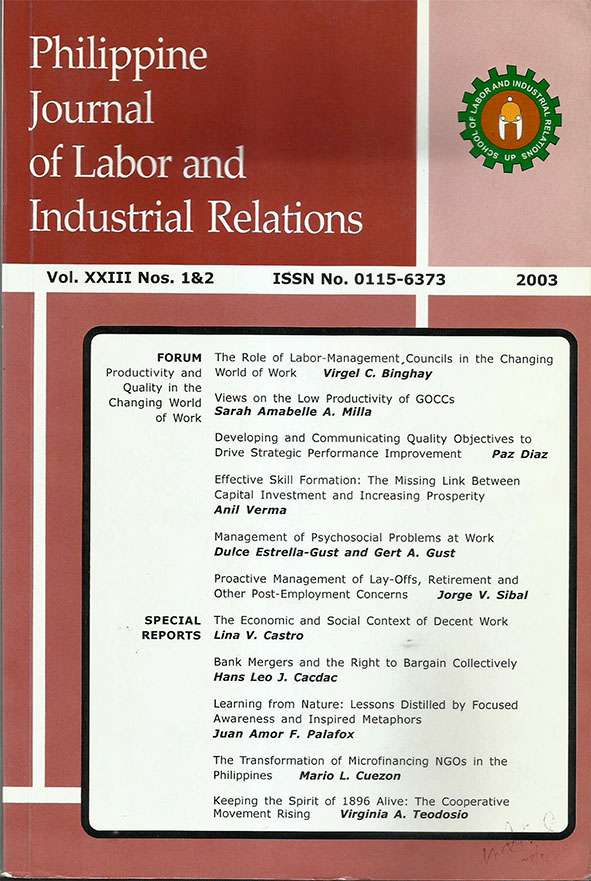Management of Psychosocial Problems at Work
Abstract
The paper reviews and assesses the experiences with and responses to a range of psychosocial problems at work. International and national experiences including laws and practices are discussed. The paper likewise reviews psychosocial problems in the organizations and firms emerging from recent studies, and recommends methods for addressing psychosocial problems in Philippine organizations or firms.
Stress, violence and substance abuse have shown interrelationships and if left unchecked may reinforce each other leading to loss of productivity and impact on relationships even outside work. Responses have included a comprehensive body of conventions, resolutions and declarations by international bodies like the International Labor Organization (ILO). As a program, ILO has introduced the concept of SOLVE (Stress, Tobacco, Alcohol & Drugs, HIV/AIDS, Violence) to rectify specific problems. The approach is based on the premise that prevention is better than cure. Started in year 2002, the ILO has trained trainers from several ILO member countries including the Philippines, who have then replicated the trainings in their own countries.
The Philippine experience is presented with case studies, surveys and databases. All five concerns are backed up by laws and workplace policies. The response has been massive in the area of advocacy, training, and technical assistance in policy and program development.
The review of data has pointed to several responses which started as denial and avoidance of psychosocial problems at the organization and firm level, to a paradigm shift of proactive, preventive action. Aware of the advantages of preventions, some companies and organizations are moving in the direction of management of psychosocial problems at work through comprehensive policies and programs. SOLVE has been adapted by both government and academe and is being presented as an integral part of OSH programs in Philippine workplaces.


